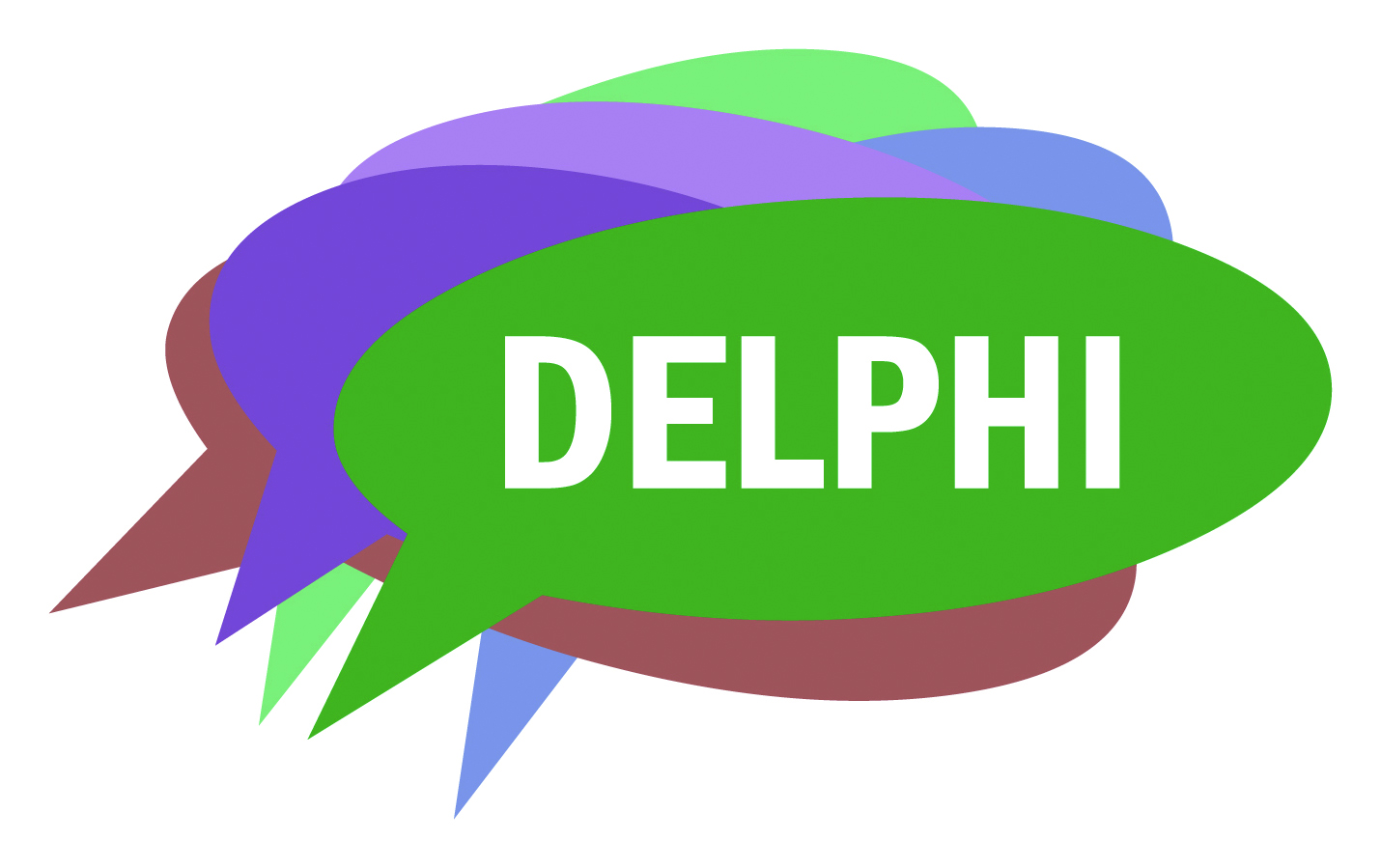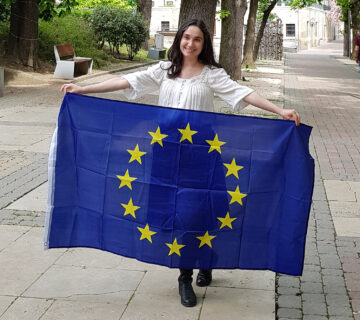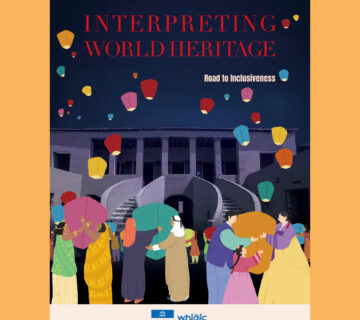The closing conference of this project – in which IE was an associate partner – is available for all to watch on the project website.
We reported on the Erasmus+ project, DELPHI – Development of continuing professional development for heritage interpretation staff to facilitate lifelong learning for social inclusion and European cohesion, in the autumn newsletter 2019. The project aimed to use heritage interpretation to inspire values, like peace, freedom, tolerance and solidarity.
The team comprising of seven partners (including IE as an associate partner) from Germany, Greece, Belgium, Italy and the UK is wrapping up the final stages of the project and reflecting on all we have achieved over the last two years. Amid Brexit negotiations and a pandemic, the partnership, involving specialist Interpretation trainers, institutes of higher education working on heritage and interpretation, adult education, cultural associations, NGOs and government bodies, is finalising its CPD modules, available through its online learning environment, complete with a self-evaluation tool.
Our final conference was held online on 14 October and the recording can be watched on our website. A total of 70 participants registered from across Europe. After introducing the general themes of the project, the ten pilot projects were introduced in break-out rooms, and project leaders presented back the groups’ views in the plenary. A virtual walk and talk was held using the gather.town app, allowing participants to chat and network.
The take-away from the conference was an acknowledgement of the power of heritage interpretation in revealing why heritage is meaningful, offering paths to deeper meaning. Our interpretations are not value free and we can challenge or reinforce clichés and exclusionary identities or foster values of inclusiveness and mutual understanding. Delphi’s strength is the way it helps heritage interpreters to draw on the core values of the EU, and the latest Council of Europe heritage standard, the Framework Convention on the Value of Cultural Heritage for Society (Faro, 2005) into their work. The Delphi pilots demonstrated this, and reflect the strength of our training and the Competence Framework (EQF levels 4-7).
The Delphi tool kit is a modular learning approach that can be tailored to different requirements. Blended learning – through a mixture of webinars, web-based learning and a face-to-face courses – were developed and tested in our pilot course, and through mentoring of ‘homework projects’. These are all linked to the competence framework, allowing a learner, or learner provider, to understand the range and level of knowledge, skills and attitudes that a learner or employee possesses. Learning can be validated using a tool on the learning platform, where all the Delphi course modules and materials can be found, together with various didactic patterns that can be tailored to suit the particular needs of a group or provider.
The outcomes of the project, including its training tool kit and pilot projects, will also be available at www.delphi.eu.org. More information can also be found in the project newsletters.
Sarah Wolferstan is the European Project Manager at the Centre for Applied Archaeology, a commercial consultancy and training division of the Institute of Archaeology, University College London (UCL) https://www.ucl.ac.uk/centre-applied-archaeology/about. She can be contacted at: sarah.wolferstan@ucl.ac.uk.
To cite this article: Wolferstan,Sarah (2020) ‘DELPHI project comes to a close’. In Interpret Europe Newsletter 4-2020, 7.
Available online: https://www.interpret-europe.net/fileadmin/Documents/publications/Newsletters/IE_newsletter_2020_4_winter.pdf




